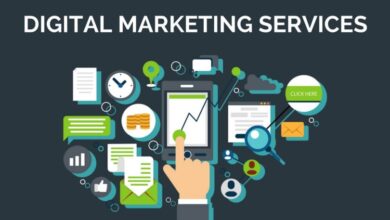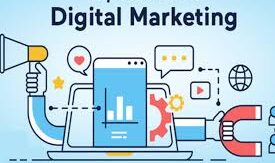3 Marketing Tools Small Businesses Need To Know About in 2025
3 Marketing Tools Small Businesses Need To Know About in 2025
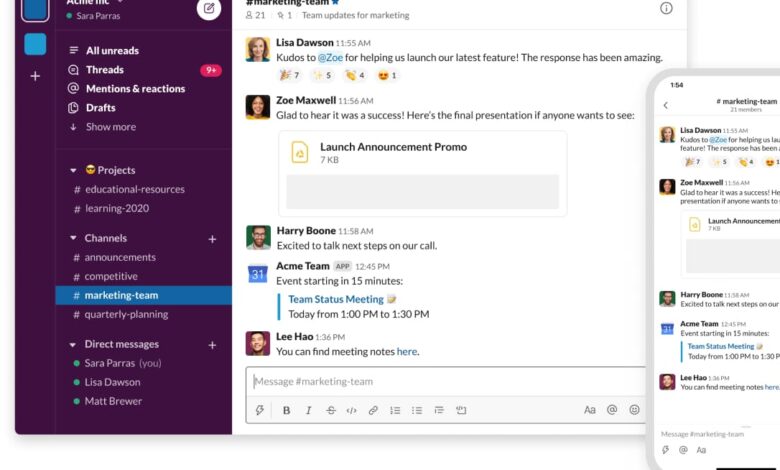
The Importance of Marketing Tools for Small Business Success
Running a small business requires immense dedication and effort to remain successful. In the U.S., there were 31.7 million small businesses in 2020. However, according to the U.S. Bureau of Labor Statistics, 82% of small businesses fail within their first year, 50% make it to five years, and only 35% last for a decade or more.
As a small business owner, one key factor in improving your chances of success is leveraging digital marketing tools. By boosting your marketing efforts with the right software, you can plan, manage, and track your campaigns more efficiently.
Why Should Small Businesses Use Marketing Tools?
The marketing technology (martech) industry reached a valuation of $344.8 billion in 2021, according to Statista, with 96% of marketers relying on marketing automation platforms. These statistics show just how essential digital marketing tools have become for driving growth and success.
For small business owners, using marketing tools is not just an option—it’s a necessity. Much like finding creative ways to hire talent, improving your marketing strategies requires innovative solutions. If the majority of marketers trust automation platforms, there’s a strong case for incorporating them into your business.
In this article, you’ll explore the benefits of using marketing tools for small businesses, key features to look for in the right software, and ten marketing platforms that can help you elevate your marketing strategies and campaigns.
1. Marketing tools automate your workflow ⚡️
Working nonstop can sometimes make you and your employees feel like you’re on a never-ending hamster wheel and can’t find your way off. And truthfully? You just might be.
It can be hard to step back and look at the bigger picture whenever you are extremely busy with different projects. Are the strategies that you have implemented for marketing working? Is there something you can put into play that will free up your time?
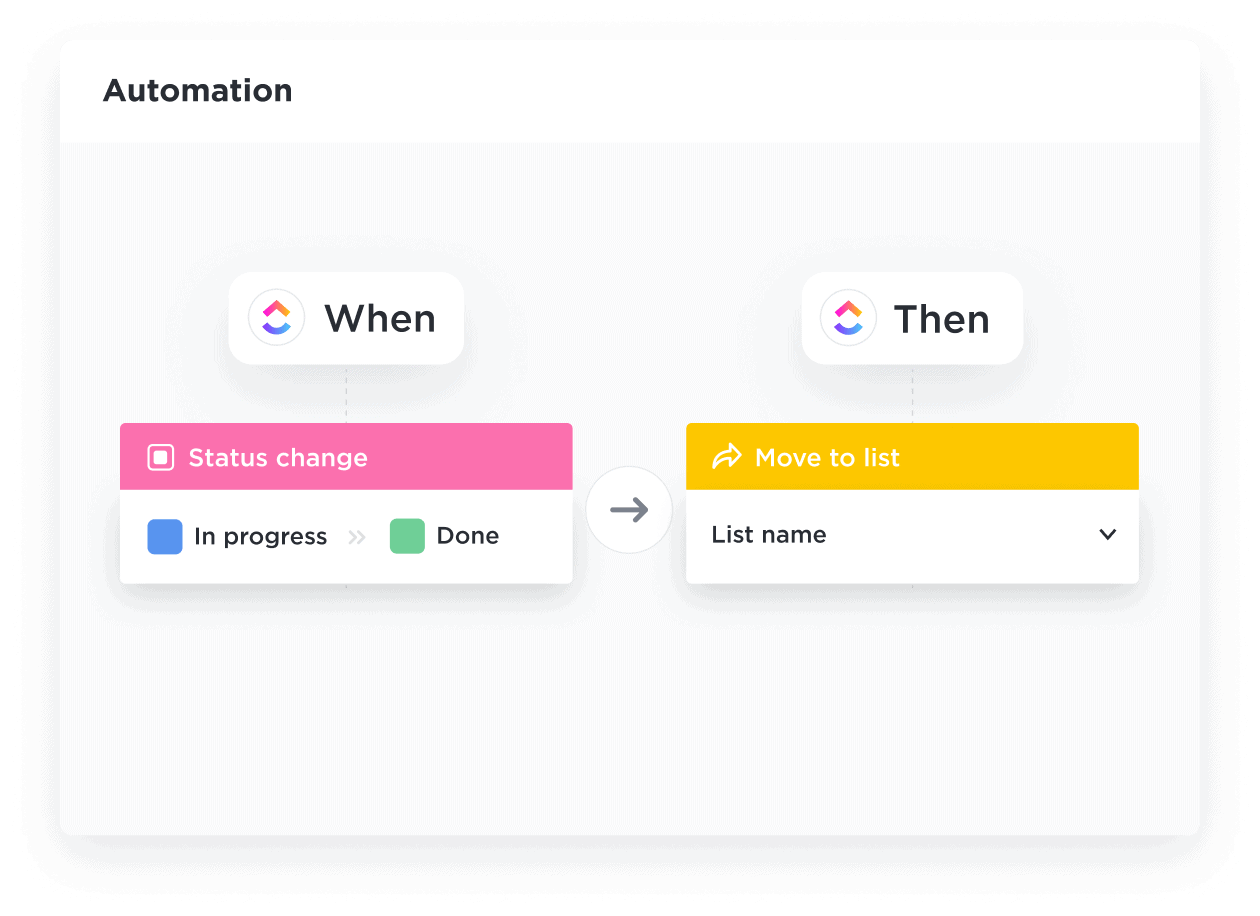
Digital marketing tools that will automate workflows are certainly something that your marketing staff will be grateful for.
Instead of manually completing every step of a process, good digital marketing tools that will automate workflows will free up their time for bigger and better projects. With workflow automation, employees will benefit from streamlined communication, high-quality work since processes will be less prone to human error, and increased accountability.
All of these benefits will contribute to the overall growth of the department and, therefore, the company.
2. Marketing Tools Help Deliver Projects on Time and Within Budget
In the fast-paced world of small business, it’s easy to get caught up in the rush to meet deadlines. With multiple team members juggling various roles, managing tasks efficiently becomes even more crucial.
But what happens when someone forgets a task, or a key component of the project is overlooked? As a small business owner, it’s essential to improve productivity and ensure realistic workloads. This is where a marketing project management tool, such as ClickUp, can make a significant difference.
With ClickUp’s Project Management Review Template, your team can decide whether to move forward with a project, ensuring all components are addressed. This tool helps assess progress, evaluate expected results, and determine if the next steps should be taken.
Using a project management tool like ClickUp allows your team to stay organized, track tasks, measure progress, and ensure nothing is overlooked. It also helps manage project budgets more effectively, ensuring that projects are delivered on time and within the budget.
3. Marketing Tools Help Track Goals and Measure Progress
For small businesses, tracking the success of marketing campaigns is crucial. By setting clear objectives and using the right marketing tools, you can monitor what’s working and what isn’t, ensuring your efforts are effective.
When selecting marketing tools, it’s important to choose those that allow you to track progress toward your goals. For example, if your goal is to increase website traffic, define your target traffic and timeframe.
As you implement new marketing tools, set specific goals and timelines to assess their performance and impact on your business growth.
Measuring Progress with Marketing Tools
The marketing tools you choose for your small business should enable you to track your progress effectively. A great approach is to establish key result areas (KRAs) for marketing within your business. Setting marketing OKRs (Objectives and Key Results) and monitoring metrics can help you measure the success of your marketing efforts and the tools you use.
With the right marketing tools, you can easily track a variety of important metrics, including:
- Customer engagement
- Conversion rate
- Clickthrough rate (CTR)
- Cost per lead (CPL)
- Marketing qualified leads (MQL)
These metrics help you understand what’s working, refine your strategies, and ultimately improve your marketing outcomes.
4. Marketing Tools Collect Feedback to Enhance Customer Experience
Around 68% of consumers are willing to pay more for products or services from a brand that provides exceptional customer service. The key to delivering a great customer experience is actively gathering and responding to customer feedback.
For small businesses, using the right marketing tools to collect and analyze feedback is essential for continuous improvement. By leveraging these tools, you and your marketing team can better understand your customers’ needs and make data-driven decisions to enhance their experience.
5. Marketing Tools Help Expand Your Reach
Effective marketing is all about connecting with people. As a small business owner, expanding your audience and growing your following are crucial goals.
Social media platforms like Facebook, Instagram, and Twitter are among the most popular, making them essential for reaching a larger audience. By targeting these platforms, your marketing team can boost your brand visibility and engagement.
With the right marketing tools, you can streamline your efforts and quickly implement strategies to grow your audience across social media channels.
Additionally, consider using time-tracking tools designed for small businesses to improve your team’s productivity and ensure efficient execution of marketing campaigns.
11 Must-Know Marketing Tools for Small Businesses in 2025
As a small business owner, staying competitive in today’s fast-paced market requires the right tools. With digital marketing continuously evolving, the tools you use to manage your campaigns can make a significant difference in your success. From social media management to email marketing automation, the right marketing tools will streamline your efforts and help you reach your business goals.
In 2025, these 11 marketing tools are essential for small businesses looking to grow, enhance customer engagement, and drive conversions. Let’s dive into the top marketing software that can take your business to the next level.
Choosing the Right Marketing Tools for Your Small Business Made Easy
Selecting the best marketing tools for your small business can feel overwhelming, but don’t worry – we’ve done the research for you. In this guide, we’ll walk you through 10 essential marketing tools that no small business should miss. These tools will streamline your marketing efforts, enhance customer engagement, and help you achieve your business goals.
1. Sendinblue – Best All-in-One Digital Marketing Platform
Sendinblue is a comprehensive marketing communication tool that offers a variety of features to help small businesses manage marketing automation, email campaigns, transactional emails, and SMS messaging.
This platform is ideal for sending newsletters, mass communications, and personalized messages to your audience. With its advanced, real-time reporting, Sendinblue provides valuable insights to track and optimize your marketing metrics. Plus, with the ability to add unlimited contacts to your database, it’s a scalable solution that grows alongside your business.
Key Features:
- Marketing automation
- SMS messaging
- Advanced, real-time reporting
- Email and phone customer support
- Pre-scheduled campaigns
- Unlimited contacts
Limitations:
- Limited number of integrations
Pricing:
- Free: Free with unlimited contacts
- Starter: Starting from $25 per month
- Business: Starting from $65 per month
- Enterprise: Contact for pricing
Customer Reviews & Ratings:
- G2: 4.5 out of 5 (1,541+ reviews)
- Capterra: 4.6 out of 5 (1,549+ reviews)

2. Slack – Best for Team Communication
Slack is a team collaboration app designed to streamline communication within your business. Ideal for small businesses, Slack simplifies team messaging, file sharing, and project management, helping your team stay connected and organized.
With Slack, you can have open discussions, create private groups, and use direct messaging for one-on-one communication. The app also offers features like deep contextual search, message archiving, and file sharing, allowing you to quickly resolve issues without the need for emails or in-person meetings.
Key Features:
- Collaboration tools
- Audio and video conferencing
- File sharing
- Web application with countless integrations
- Mobile app
Limitations:
- Messages can become disorganized without proper management
Pricing:
- Free: Limited features
- Standard: $6.67 per user/month (billed annually)
- Plus: $12.50 per user/month (billed annually)
- Enterprise Grid: Custom pricing
Customer Reviews & Ratings:
- G2: 4.5 out of 5 (30,820+ reviews)
- Capterra: 4.7 out of 5 (22,806+ reviews)
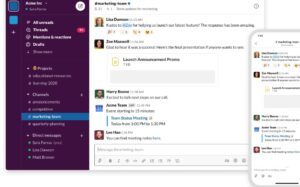
3. ClickUp – Best for Project Management and Team Collaboration
Looking for a better way to manage projects and collaborate with your team? ClickUp is the solution.
As a flexible and highly functional project management tool, ClickUp provides your marketing team with everything needed to effectively plan, manage, and track marketing campaigns, projects, and tasks. Whether you’re a small business or scaling to larger operations, ClickUp’s robust features allow you to monitor marketing initiatives, track employee workloads, and manage projects seamlessly.
ClickUp is built to be flexible, scalable, and customizable, making it ideal for businesses of all sizes and industries. With over 15 customizable views, it helps you visualize tasks, projects, and workflows the way that works best for you. As your business grows, ClickUp will scale with your needs, ensuring your project management is always on point.
Want even more efficiency? ClickUp integrates with over 1,000 work apps, centralizing your tasks, communications, and projects in one place.
Key Features:
- Custom Views: Choose from 15+ views (Timeline, Gantt, Workload view, and more)
- CRM in ClickUp: Organize customer relationships with tracking, data visualizations, and email, all in one platform
- Custom Dashboards: Get a high-level overview of your work at a glance with customizable dashboards
- Calendar View: Manage your content calendar in the Calendar view
- Digital Whiteboards & ClickUp Docs: Plan and document strategies in ClickUp Whiteboards or Docs
- Email Integration: Send and receive emails directly within tasks to streamline communication
Limitations:
- Some advanced features are only available in the paid versions
Pricing:
- Free Forever: Feature-rich free plan
- Unlimited: $5 per month/user
- Business: $12 per month/user
- Business Plus: $19 per month/user
- Enterprise: Contact for pricing
Customer Reviews & Ratings:
- G2: 4.7 out of 5 (5,675+ reviews)
- Capterra: 4.7 out of 5 (3,544+ reviews)


